Essential Infrastructure Considerations When Buying Rural Land
11 May 2025
There’s something undeniably charming about owning a piece of rural land. The wide-open spaces, peaceful surroundings, and connection with nature—it's a dream many aspire to. But here’s the deal: buying rural land isn’t as simple as saying, “I’ll take it.” It’s not like grabbing apples at a grocery store. There’s a lot to think about, especially when it comes to infrastructure. If you skip this step, you could end up with a big piece of land, sure—but with a whole lot of headaches, too. So, let’s dive into the essential infrastructure considerations you need to keep in mind before signing on the dotted line. Trust me, these are the kind of things you’ll want to know before you make your big move!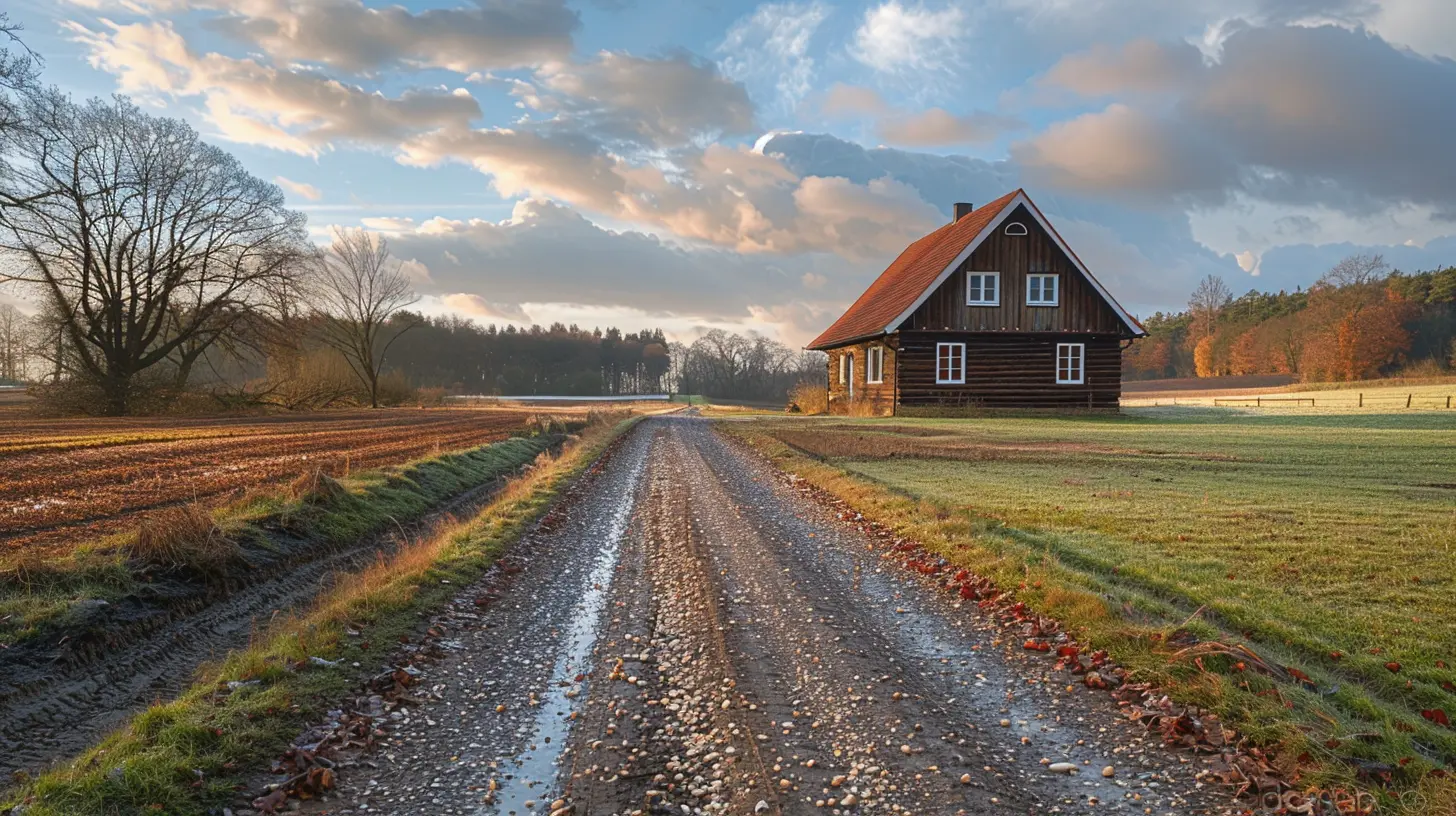
Why Infrastructure Matters More Than You Realize
Let’s start with the basics: what do we mean by infrastructure? Simply put, it’s the backbone of your property. It includes utilities, access roads, drainage systems, and more. Without proper infrastructure, your dream rural property could quickly turn into a nightmare. Imagine buying land only to find out you can’t get water or electricity to it. Or worse, it floods every time there’s a heavy rain. Not so dreamy now, is it?When buying rural land, infrastructure isn’t just a “nice-to-have.” It’s an absolute must. Whether you’re planning to build your forever home, start a farm, or invest for the future, you’ll need to make sure the basics are covered. Let’s break it down.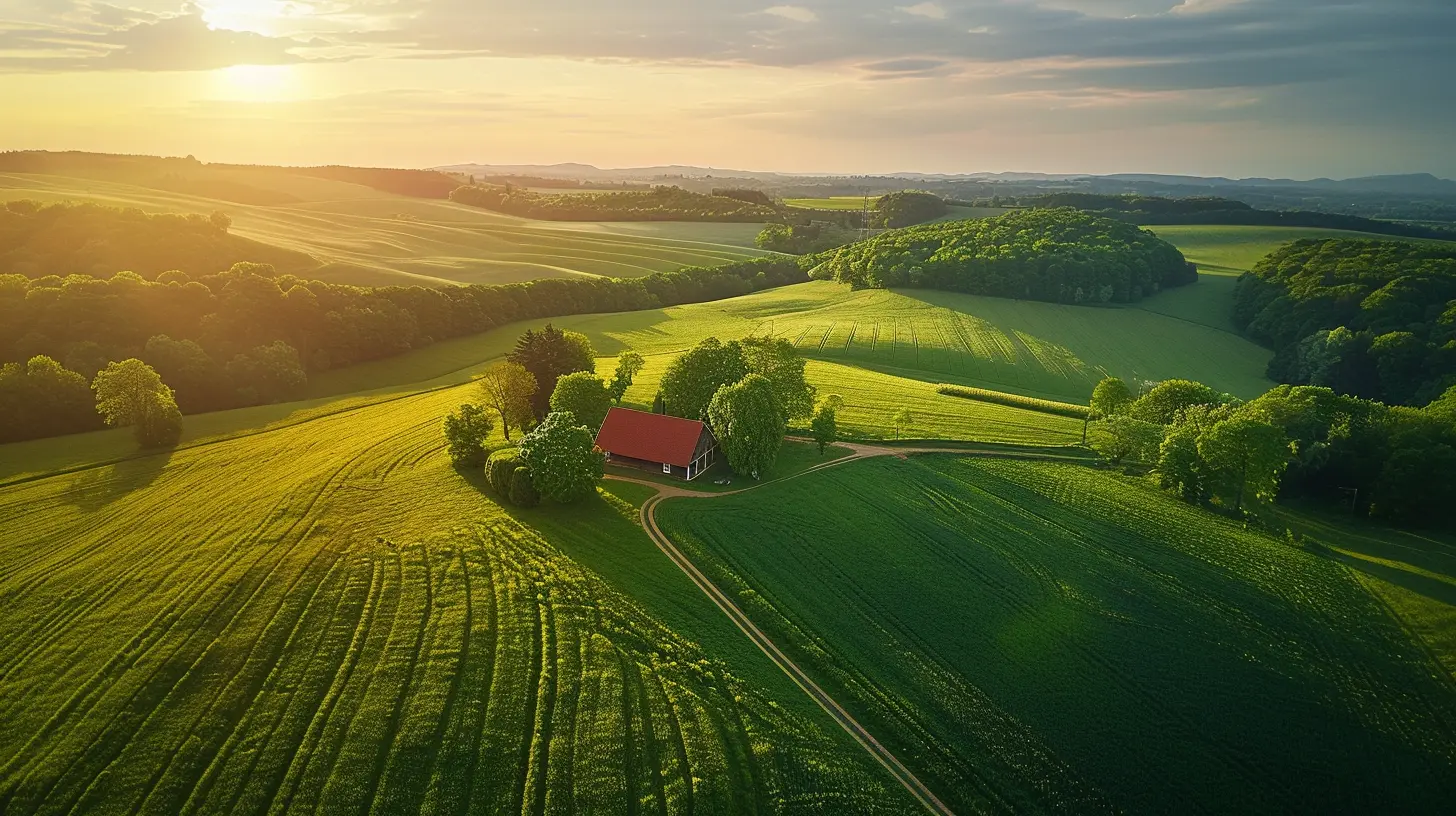
1. Access Roads: Can You Actually Get to Your Land?
This one might seem obvious, but you’d be surprised how often it’s overlooked. How are you supposed to get to your property? Sure, the land might look stunning in pictures, but if the only way to access it is through a rugged dirt track that turns into a mudslide during rains, you’ve got a problem.Key Considerations:
- Road Conditions: Are the roads leading to your property paved, gravel, or dirt? Unpaved roads might be fine in dry weather, but they can become impassable during heavy rains.- Legal Access: Do you have a legal right-of-way to access the property? Sometimes rural parcels are "landlocked," meaning there's no legal access to them.
- Maintenance: Who’s responsible for maintaining the road? If it’s a private road, you might have to chip in.
Think of access roads as the first handshake with your land. If the handshake’s weak, it might signal bigger problems down the line.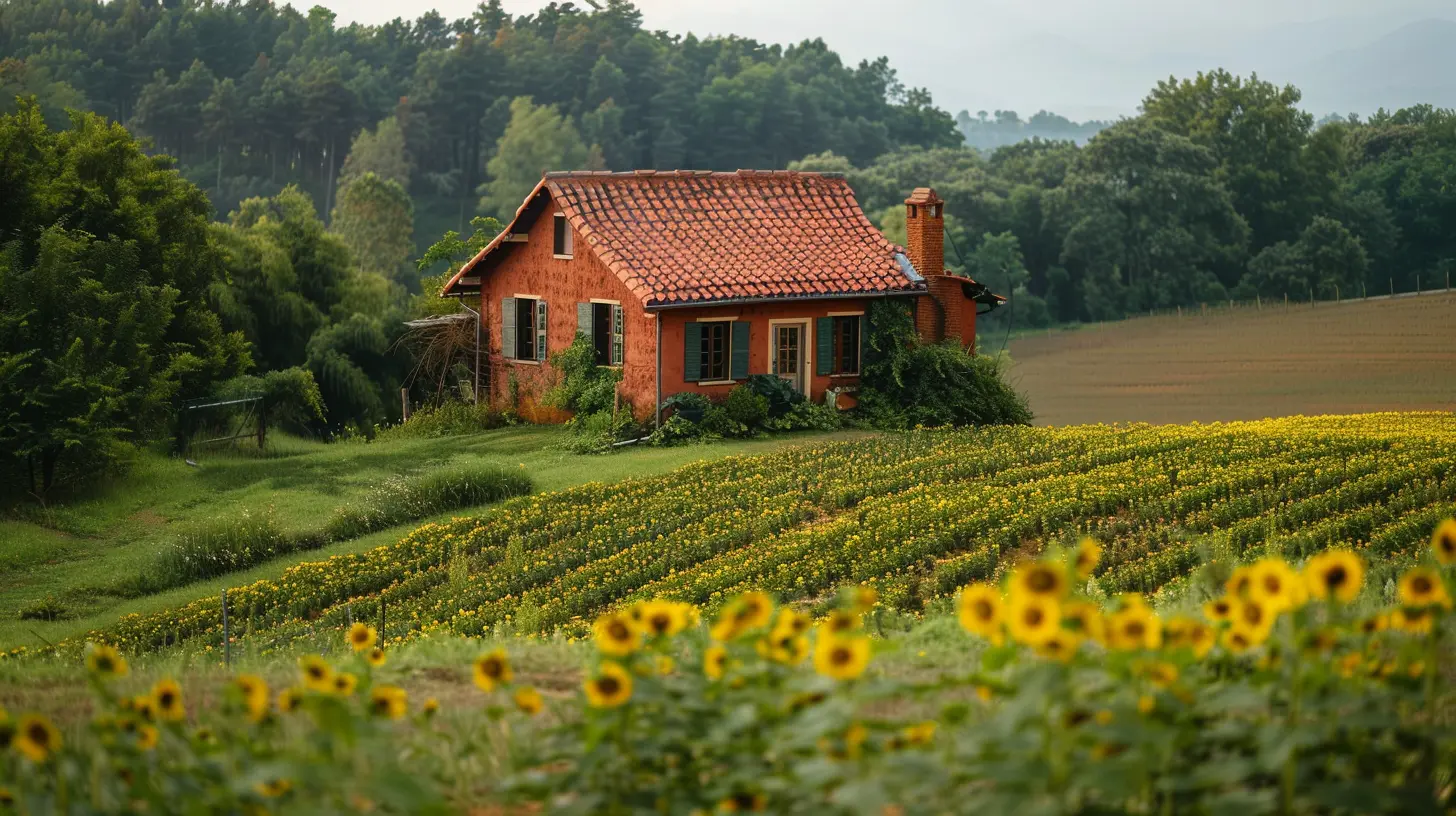
2. Utilities: Power, Water, and Internet – The Big Three
Imagine moving to your rural paradise, only to find out you can’t charge your phone, drink clean water, or check your emails. Yep, utilities are a big deal.Power
Electricity isn’t always a given in rural areas. Check if there are power lines nearby. If not, you’ll need an alternative like solar panels, generators, or wind turbines. Keep in mind, installing these can cost a pretty penny.Water
Water is life—literally. Does your land have access to a reliable water source? If there’s no municipal supply, you’ll likely need a well. And drilling a well isn’t just about digging a hole; it needs to meet local regulations and provide clean water.Internet
Let’s face it, we all need the internet these days, even in the middle of nowhere. Check with local providers to make sure you can get a reliable connection. Satellite internet might be your only option in some areas, but it can be slower and more expensive.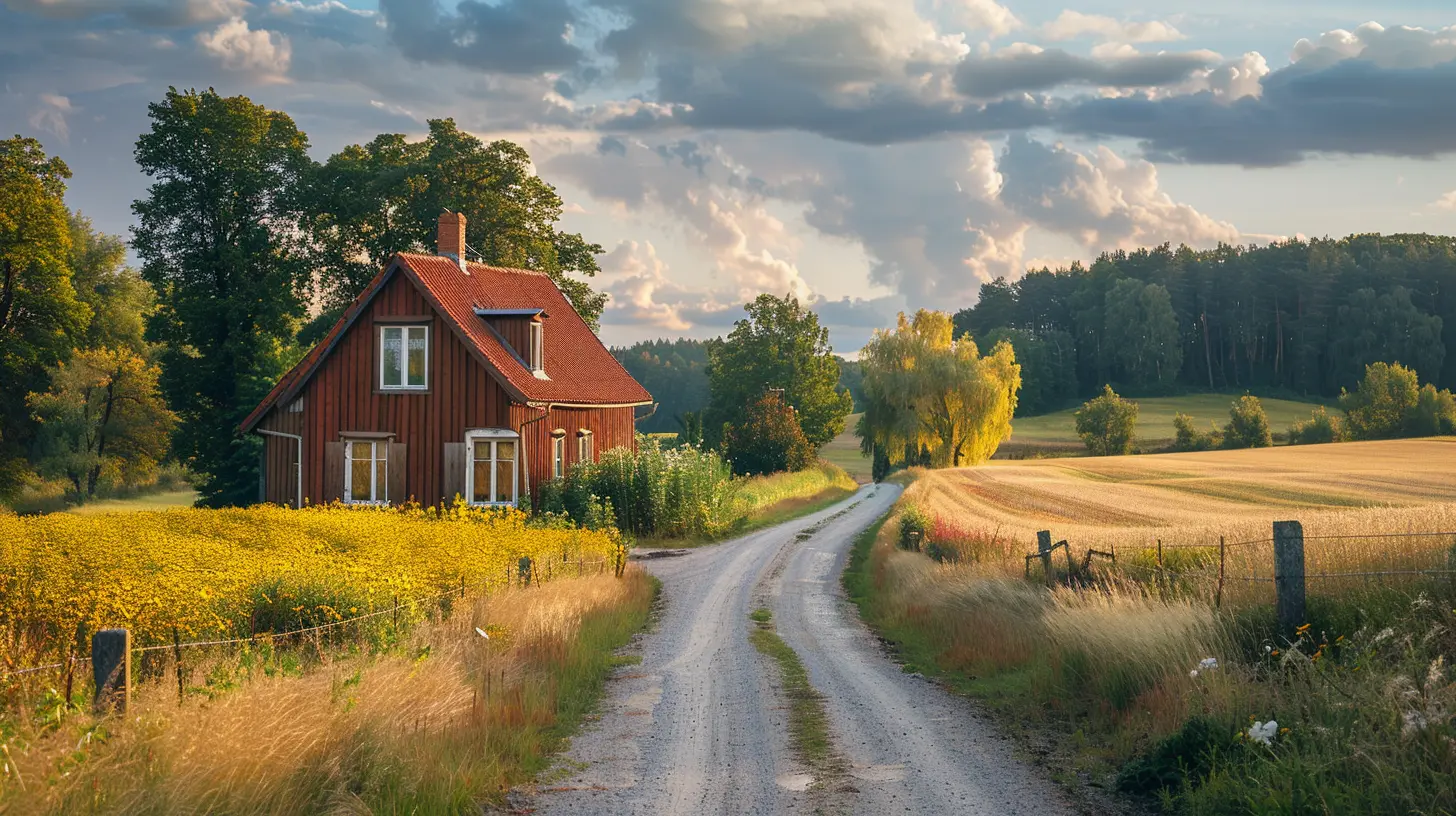
3. Drainage and Flooding: Is Your Land High and Dry?
You don’t have to be a meteorologist to know that water always finds its way down. How land handles water is super important, especially in rural areas where drainage systems might not be as developed.Red Flags to Watch For:
- Does the area flood during heavy rains?- Are there natural drainage systems, like creeks or ravines, to handle runoff?
- Is the land sloped or flat? Steep slopes might cause erosion, while flat land could lead to pooling water.
Pro tip: Visit the property after it’s rained. This will give you a much better idea of how water flows—or doesn’t—on the land.
4. Septic Systems: Where Does the Waste Go?
Unless your rural land is already connected to a municipal sewer system (unlikely!), you’ll need a septic system for managing waste. And trust me, this isn’t something you want to figure out after you’ve moved in.Things to Consider:
- Soil Testing: Before installing a septic system, the soil must be tested to ensure it can adequately filter wastewater.- Size and Cost: The size of the septic system you’ll need depends on how many people will be living on the property. Larger systems = higher costs.
- Maintenance: Septic systems need regular maintenance to function properly. Factor this into your long-term budget.
It’s not glamorous, but it’s necessary. Nobody wants to deal with a septic nightmare.
5. Zoning and Permits: What Can You Actually Do With the Land?
Not all rural land is created equal when it comes to zoning and permits. You might dream of building a cozy cabin, starting a farm, or setting up a business, but local regulations could throw a wrench in your plans.Questions to Ask:
- Zoning: Is the land zoned for residential, agricultural, or commercial use? Some areas might restrict what you can build.- Permits: What permits will you need for construction, utilities, or other activities?
- Easements: Are there any easements (i.e., rights for others to use part of your land for specific purposes)? Easements can limit how you use your property.
Think of zoning and permits as the rulebook for your land. Make sure you know the rules so you don’t end up breaking them unknowingly.
6. Proximity to Emergency Services: Safety First
Let’s not forget the practical side of things. If something goes wrong—whether it’s a fire, a medical emergency, or a break-in—how quickly can help arrive?Important Considerations:
- How far is the nearest fire station, hospital, or police station?- Are there volunteer emergency services in the area? (These are common in rural places.)
- What’s cell phone coverage like? In some rural areas, you might not even have a signal to call for help.
Safety might not be glamorous, but it’s non-negotiable.
7. Costs of Development: How Much Will It Really Take to Make the Land Livable?
Let’s talk dollars and cents. While the land’s price might seem like a steal, the costs of making it livable can add up—fast.Common Expenses:
- Extending utilities (electricity, water, etc.) to the property- Building access roads
- Installing a well and septic system
- Clearing the land for construction
- Fencing or securing the perimeter
Before you buy, sit down and crunch the numbers. The sticker price of the property is just the tip of the financial iceberg.
8. Environmental Considerations: Staying in Harmony With Nature
Last but definitely not least, think about the land’s natural environment. Rural properties often have unique ecosystems that require care and attention.Things to Look For:
- Are there any protected species or habitats on the land?- Are there restrictions on clearing trees or plants?
- Is the soil fertile if you plan on farming?
Respecting the environment isn’t just about being a good neighbor to Mother Nature—it can also save you from legal troubles down the line.
Final Thoughts: Take Your Time and Do Your Homework
Buying rural land can be an incredibly rewarding experience, but it’s not something to rush. Take your time, do your homework, and don’t be afraid to ask tough questions. Think of it like dating—you want to make sure you really know what you’re getting into before committing.Remember, it’s not just about the land itself—it’s about everything that comes with it (or doesn’t). By keeping these infrastructure considerations front of mind, you’ll set yourself up not just to buy land, but to turn it into a place you’ll love for years to come.
all images in this post were generated using AI tools
Category:
Rural PropertiesAuthor:

Vincent Clayton
Discussion
rate this article
7 comments
Drift Cooper
Great insights! It's easy to overlook infrastructure when buying rural land. I love how this article highlights what’s truly essential for a peaceful country life!
May 18, 2025 at 5:06 AM

Vincent Clayton
Thank you! I’m glad you found the article helpful in recognizing the importance of infrastructure for a fulfilling rural lifestyle.
Marcus Horne
Great tips! Essential info for rural buyers!
May 17, 2025 at 7:24 PM

Vincent Clayton
Thank you! I'm glad you found the tips helpful for rural buyers!
Victoria Clark
When purchasing rural land, prioritize essential infrastructure like access to roads, water supply, and electricity. Evaluate the potential for future development and sustainability. Understanding local zoning laws and environmental factors can also safeguard your investment. Thoughtful planning now ensures a fulfilling and functional space for years to come.
May 17, 2025 at 11:58 AM

Vincent Clayton
Thank you for your insightful comment! Prioritizing essential infrastructure and understanding local regulations are indeed crucial for a successful rural land purchase. Your emphasis on future development and sustainability is especially valuable for long-term planning.
Damien Rivera
Buying rural land? Don’t forget to consider the essentials! Remember, a charming cabin won’t save you if your only water source is a garden hose. And let’s be honest, you can’t run a coffee shop without reliable Wi-Fi—caffeine connections matter!
May 17, 2025 at 2:37 AM

Vincent Clayton
Absolutely! Essentials like water access and reliable connectivity are vital for rural living. Planning ahead can make all the difference!
Wesley Reilly
Great article! Investing in rural land is so exciting! Understanding essential infrastructure ensures your dream property meets your needs. Happy land hunting to all future rural homeowners! 🌟🏡
May 14, 2025 at 11:06 AM

Vincent Clayton
Thank you! I'm glad you found the article helpful. Understanding infrastructure is key to making informed decisions when investing in rural land. Happy land hunting! 🌟
Selkie Moore
Buying rural land? Don't forget the essentials! Wi-Fi is crucial, unless you fancy chatting with cows!
May 13, 2025 at 7:56 PM

Vincent Clayton
Absolutely! Reliable Wi-Fi is essential for modern rural living—communication and connectivity should be a top priority.
Noemi McIntire
This article brilliantly highlights the importance of infrastructure when purchasing rural land. Assessing access to utilities, transportation, and communication services is crucial for ensuring a viable investment and enhancing long-term livability. Great insights!
May 12, 2025 at 7:37 PM

Vincent Clayton
Thank you for your thoughtful feedback! I'm glad you found the insights on infrastructure valuable for rural land investment.
MORE POSTS

Understanding the Mortgage Application Process: A Step-by-Step Guide
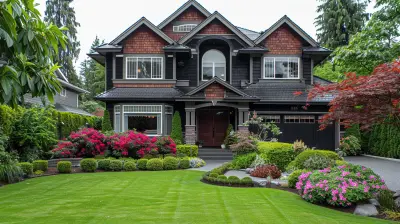
Refinancing a Reverse Mortgage: Is It Possible?

The Impact of Color Schemes on Real Estate Photos

How to Qualify for Affordable Housing Assistance
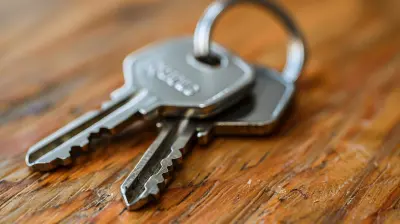
What to Know About Selling a Home with Tenants
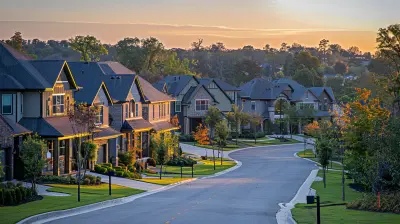
Accessibility and Transportation: Key Factors for Choosing a Suburban Home